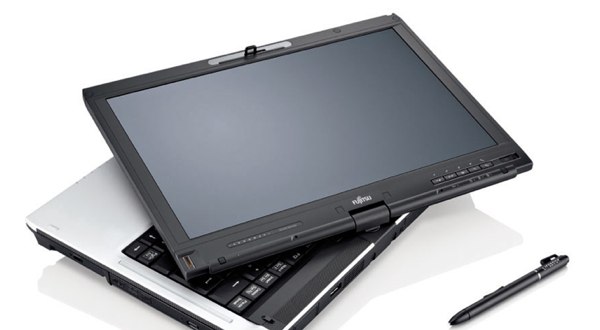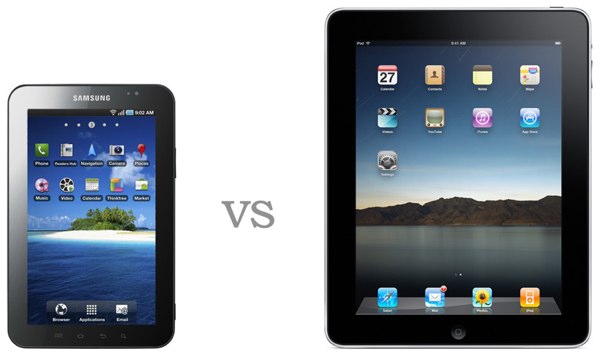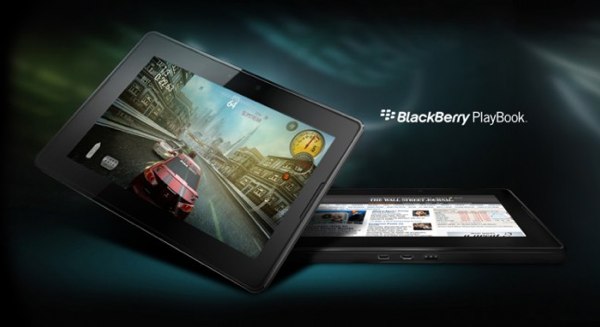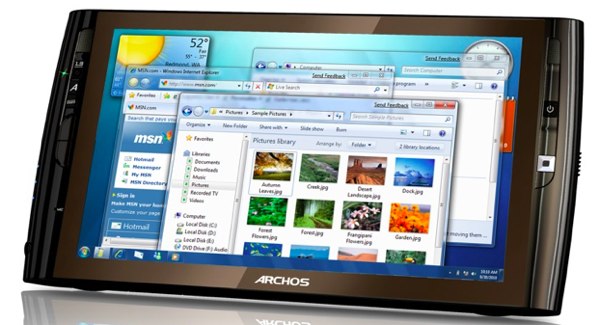The iPad is dominating with 95 percent of the tablet computing market under Apple’s control. Not exactly shocking, right? What is shocking, though, is that there is a 5 percent of the market that isn’t controlled by the iPad. I didn’t even know there was anything else out there worth purchasing! Seriously, it just goes to show how amazing Apple’s journey with the iPad has been.
It wasn’t too long ago when Microsoft was claiming throne to the computing tablets of the future. Steve Ballmer envisioned everyone owning a tablet running Windows. This is when Microsoft began adding features specifically for tablet computing: Windows XP Tablet PC Edition.

However, things didn’t pan out well for Microsoft. The tablet computer never received the traction nor support needed from computer manufacturers or Microsoft to create a compelling product for consumers — businesses were the only audience that Microsoft had ever really attracted, and that isn’t much to brag about either. The mouse- and keyboard-oriented operating system proved that it was not a suitable candidate for touch-based computing, no matter how many tweaks Microsoft made.
As time went on, the tablet was faded out of the spotlight. The death of tablet computing was apparent, as smart phones and netbook computers picked up the slack. Some blame the computer manufacturers for not creating hardware that was good enough. Others blame Microsoft for not creating a suitable experience for a tablet form factor. I think it is a combination of both. No matter where the blame was placed, it was game over.
But little did we know what game plan Apple had drawn up. The company was set to revolutionize yet another industry.

Tablet Computing’s Savior
In April 2010, Apple and Steve Jobs announced that the iPad would become a reality. It had a similar feature set to the iPod Touch, to which some had taken notice, but it offered increased screen space and a better form factor for the person who wanted something more powerful than an iPod Touch but not nearly as complicated as a Macbook. It was the perfect middle ground for consumers.
Still, there was plenty of skepticism surrounding the product. How popular would it become with consumers? Would it be considered too expensive? Would the fact that it offered similar functionality to the iPod Touch/iPhone turn off existing Apple customers? Would the iPad be able to be successful in a market where similar products have failed time after time again?
Well, it didn’t take long to find out the answers. The iPad sold 300,000 on the first day of release and over one million by the following month. Consumers took a liking to the product, and businesses also became intrigued by Apple’s offerings.
It became an overnight success.
iPad Dominance
Strategy Analytics recently released a report that highlighted Apple’s dominance with the iPad. In it, the statistic that the iPad controls over 95 percent of the entire tablet computing market is brought to our attention. This means it took Apple a mere seven months to wipe out all of the effort that Microsoft and others had attempted to accomplish with tablet computing.
Amazing? You bet.
And it is not only amazing because of the statistics; it is amazing because of how quickly Apple managed to accomplish this. In only months after its release, the iPad has set the standard for tablet computing.
The iPad is only a “1.0” device. It’s only been on the market for a few months. It hasn’t even seen the true explosion of growth that it could see if the price were reduced and the features improved. I’m sure there are many hold outs — like me — who are waiting for the next version, too. So, clearly, the iPad has plenty of upside for the future. There is no telling how far it will go — it has recreated a class of computing devices that no one else is anywhere near on the same level of competing with.
Maybe I should be used to this by now. The iPhone, iPod, and iTunes are just a few of the examples of Apple doing the impossible. Yet it still never fails to amaze me.
However, others are quicker this time around to take notice of opportunity.
Rising Competition
The iPad, like the iPhone, will be met with resistance from competition, and that competition is expected to grow intense over the next few years. In fact, there is already another that wishes to challenge the iPad.

The Samsung Galaxy Tab should be the most worrisome for Apple right now. It is the only serious competition that the iPad has at the moment; initial reviews seem to compliment the Galaxy Tab. Pricing is complicated, however, as different carriers set the own pricing for the device, which ranges from $300 to $600 or more. There is no telling if consumers will be willing to pay for the monthly data as well. It could prove a problem for Apple, though.
The Galaxy Tab will inevitably lead to more tablets being produced that utilize the Android operating system. Many will be produced for the 2010 Holiday season, alone. This can be viewed as both a good thing and bad thing, depending on where you stand. Maybe tablet computing for Android will grow stronger as people seek alternatives. But this could also place Android in a class of second-rate tablet computers that are cheap and fail to function correctly, which will inevitably happen with the creation of cheap $100 tablets.

Then there is Research In Motion (RIM), which is also breaking from tradition with the highly discussed Blackberry Playbook. Little is actually known about the device, but from what I have seen, it looks very interesting; much more so than Android on a tablet. This, too, might be an important factor: Blackberry Playbook’s operating system was designed with tablet computing in mind, while Android was not. Furthermore, it is not difficult to imagine the Playbook being a hit with corporations and businesses that desire an extra level of security and functionality that iPad and Android do not currently offer. So this will be a product to watch out for in 2011, which will also be on Apple’s radar.

Finally, we can’t rule out Microsoft, the company that has tried so hard to create the perfect tablet computing solutions for so many years. Windows 7 is obviously not the answer for tablet computing. There is also much debate over whether or not Windows Phone 7 will be transformed into a tablet operating system (much like the former iPhone OS was). All that aside, Microsoft might still shock the world yet with a completely new operating system or user interface component that could be targeted towards tablet computing. Surely Microsoft will have learned some lessons over the years, and maybe they will redeem themselves, yet.
However, there is still the question of whether or not the influx of tablet availability from other software and hardware manufacturers will invariably serve to strengthen the consumers’ desire for the iPad.
For that, however, we will have to wait.
